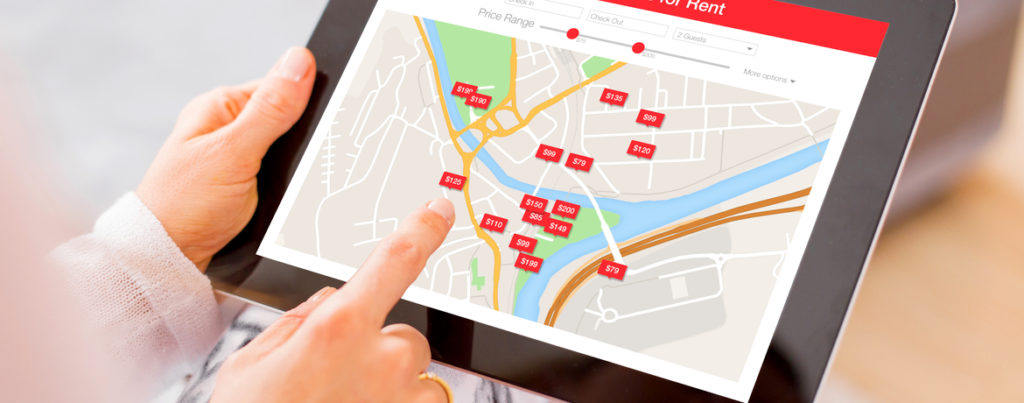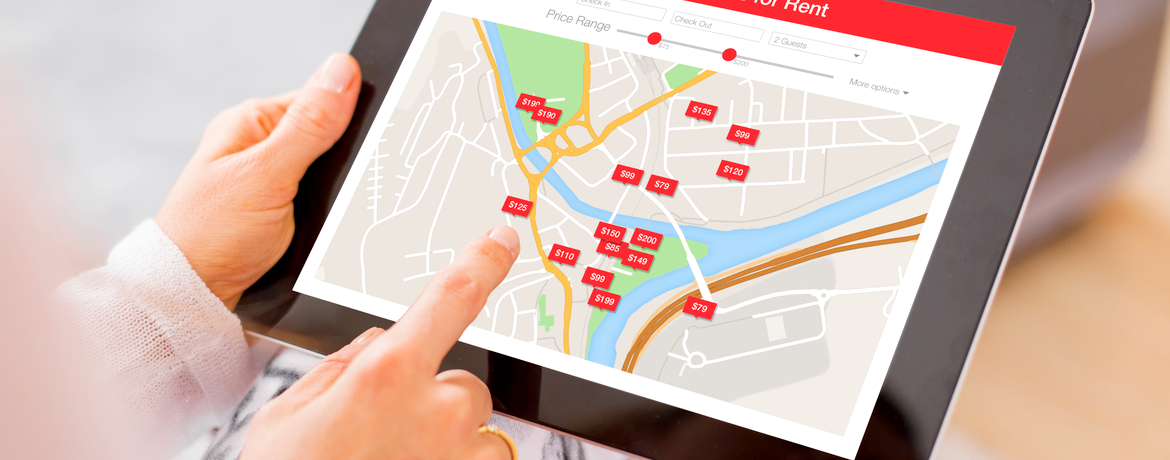The Bayerische Rundfunk reports on the topic of “Airbnb” in its article “Airbnb landlords targeted by tax investigators” on B5 aktuell and the BR24 app. Dr. Christopher Arendt, specialist tax lawyer at ACCONSIS explains:
- What led to the current situation? How can the tax office determine that I have generated income with Airbnb?
- What does this mean for Airbnb landlords who have not reported or have incompletely reported co-income to the tax office?
- What should you do if the tax office has already noticed you and written to you?
Airbnb – The IRS knows who you rented to last summer!
At the beginning of September 2020, it was widely discussed in the media: A court in Ireland has ruled that Airbnb must transmit data on landlords registered on the platform from Germany to tax investigators in Hamburg.
Airbnb is an online platform for bookings as well as rentals of accommodations of all kinds. Both private and commercial landlords can rent out their “home” or just a small part of it through Airbnb.
Airbnb – The IRS knows who you rented to last summer!

Airbnb-Vermieter im Visier der Steuerfahnder
(Airbnb landlords targeted by tax investigators)
Contribution BR24/ Bayerischen Rundfunk
from 08.02.2021
Podcast contribution B5 aktuell
How did the current situation regarding Airbnb with the tax office come about?
Since the European DSGVO (Basic Data Protection Regulation) has so far prevented German landlords on Airbnb from giving out personal data about them, it has been (almost) impossible for the German tax offices in recent years to prove whether you offer your apartment/house/room etc. for rent via the platform.
Therefore, all tax offices from all over Germany have joined forces to submit a group information request to the Federal Central Tax Office in Bonn. The Hamburg tax office was to serve as the representative of all the tax offices involved.
The Federal Central Tax Office wrote another letter reiterating the request for information from the tax offices to Airbnb’s corporate headquarters in Dublin, Ireland. However, since Airbnb refused to hand over the data, legal proceedings were then initiated in Ireland. And it is precisely these court proceedings that found a result in early September 2020: Airbnb must hand over the data of all registered landlords in Germany to the Hamburg tax office.
The data handed over is currently still being evaluated by the Hamburg tax investigation department. From there, it will then be gradually forwarded to local tax offices throughout Germany.
How can my tax office determine that I have generated income with Airbnb?
In principle, all rental income must be reported in the “V” annex to the income tax return (“V” for rental). Whether a permanent or only temporary rental is practiced is not relevant here. From this Annex V, the tax office can see the exact amount that was earned through rental income and the exact property that was rented out.
The local tax offices will now look at the submitted tax returns of the last years and can thus reconcile whether the rental via Airbnb was reported incorrectly or possibly even not at all.
What does this mean for Airbnb users who have not or not fully reported their co-income to the tax office?
For them it means that they now have to be faster than the tax office!
As long as you have not received a letter from your local tax office requesting a statement or informing you about the initiation of criminal tax proceedings, you still have the option of sending a voluntary disclosure to the relevant tax office.
An effective voluntary declaration then ensures one’s own exemption from punishment. Against the background of a possibly already existing expertise of the tax offices about their case, the effectiveness of the voluntary declaration cannot be guaranteed. But the self-disclosure had a mitigating effect on the penalty in any case.
In this voluntary disclosure, the income from rentals through Airbnb must be fully disclosed for at least the last ten years and corrected in the same course. Furthermore, the income as well as the incurred income-related expenses (= expenses for the rental property) must be disclosed.
What should I do if the tax office has already become aware of me and has already written to me, for example?
Even a late “self-disclosure” can have a mitigating effect on the punishment, since with the submission of such a subsequent report, one admits to the tax office the completed criminal act (tax evasion).
Sometimes, in such cases, criminal proceedings are not initiated, or the initiated proceedings are concluded promptly and with a lower fine for the person concerned.
If you do not take independent action despite the threat of sanctions from the tax office, in the worst case you may be threatened with proceedings for tax evasion, which can end with at least a fine, and in the worst case even with a prison sentence (possibly on probation). You should keep in mind that already a fine from (greater) 90 daily rates leads to the fact that one is “previously convicted”.
Airbnb – the tax office has contacted? Our expert advises:

Rechtsanwalt
Fachanwalt für Steuerrecht
Geschäftsführer der ACCONSIS
Dr. Christopher Arendt
Selbstanzeigen
Steuerstrafverfahren
Internationales Steuerrecht
Service-Phone
+ 49 89 547143
or by e-mail c.arendt@acconsis.de
My recommendation?
Anyone who has generated income via the Airbnb platform in recent years and has not reported this to the tax office should now act promptly!
I am happy to assist you with this topic. Please contact me.
Sources:
- https://www.handelsblatt.com/unternehmen/handel-konsumgueter/ferienwohnungen-airbnb-muss-deutschen-steuerfahndern-daten-uebermitteln/26151232.html?ticket=ST-224714-GgKFHbIPUT2mJRLns4PP-ap1
- https://www.spiegel.de/wirtschaft/soziales/airbnb-vermieter-muessen-zittern-steuerfahnder-haben-daten-a-110359d4-342b-402d-a973-292015c47357
- https://www.youtube.com/watch?v=RaLvLyueo58
- https://www.youtube.com/watch?v=MHzOg1kVF3w
- https://www.haufe.de/immobilien/wirtschaft-politik/vg-muenchen-airbnb-muss-daten-von-wohnungsbesitzern-preisgeben_84342_480126.html
- https://www.handelsblatt.com/finanzen/steuern-recht/steuern/kurzvermietung-per-airbnb-zum-steuerhinterzieher-warum-vermieter-jetzt-dringend-handeln-muessen/26192082.html
- www.leisnernet.com
- https://www.finanztip.de/untermiete/vermietung-airbnb/

